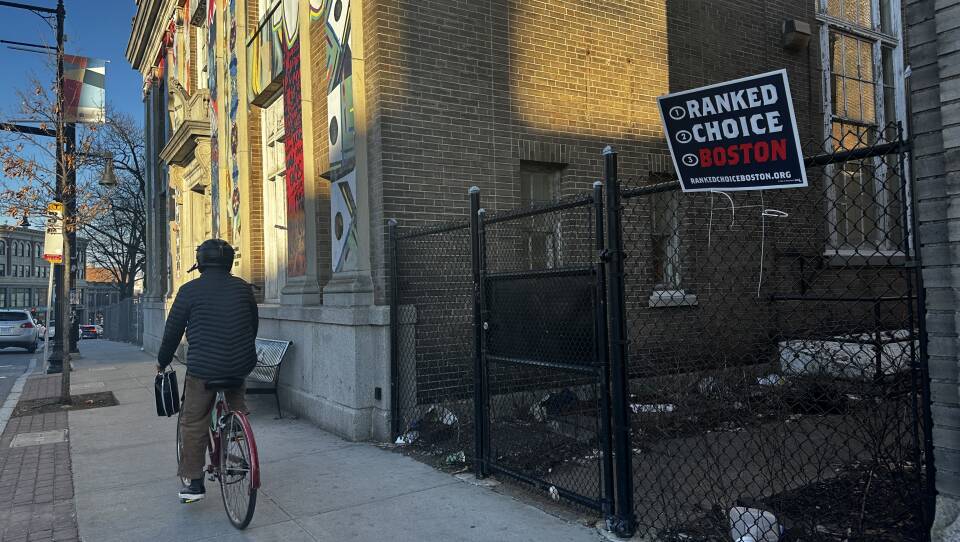This is a web edition of GBH Daily, a weekday newsletter bringing you local stories you can trust so you can stay informed without feeling overwhelmed.
⛅Clouds in the sky, with highs in the 40s.
If you find yourself awake in the wee hours tonight, look up: the moon will look dusty and red as it passes through the earth’s shadow. The blood moon will last about 65 minutes starting at 2:26 a.m. on Friday, but you can catch glimpses of a partial eclipse roughly 1 hour and 15 minutes before that.
March’s full moons are typically referred to as worm moons. This name likely comes from Naudowessie (Dakota) people, who noticed its arrival coincided with that of beetle larvae emerging from thawing tree bark.
Happy moon-gazing, but think twice before you set your alarms — the forecast calls for mostly cloudy skies tonight.
Four Things to Know
Doctors from Harvard Medical School, along with the ACLU, are suing the Trump administration, claiming that their articles were removed from the Patient Safety Network — a database used by physicians for research on medical errors and misdiagnoses — because of President Trump’s executive order banning diversity, equity, and inclusion programs. One example: a paper on suicide included a single sentence stating that LGBTQ communities are at higher risk. Another example is a paper on endometriosis, which contained a sentence about diagnosing trans and gender nonconforming people. “Good doctors serve and advocate for their patients, whoever they are,” said Celeste Royce, an assistant professor of obstetrics, gynecology and reproductive biology at Harvard Medical School and the author of the endometriosis paper.
Federal cuts, local impact: A few line items that may be affected by federal budget cuts: Revere uses $5-7 million in reimbursements from the Department of Education for food and health programs in its schools. Cambridge officials express concern about losing funding for housing voucher programs and potential cuts to Medicaid. And a consortium of cities — Boston, Cambridge, Revere, Chelsea, Everett and Somerville — may lose access to $15 million in counterterrorism money from the Urban Area Security Initiative.
Boston College students who wanted to hold a pro-Palestinian demonstration on campus say they had to wait two months for approval and were required to disclose exactly what would be said and to remove some of their planned chants. A BC spokesperson said the delay was due in part to the university’s month-long winter break, and that students are usually asked to give administrators “basic information about their demonstration plans.” Laura Beltz, director of policy reform at the Foundation for Individual Rights and Expression, called the policy “draconian.” “I think that there’s a bit of premature compliance with the current administration.” Beltz said. “The First Amendment has not changed.”
All aboard to Fall River: Starting on March 24, you’ll be able to take the Commuter Rail to and from Taunton, Freetown, Bedford, Middleborough and Fall River for the first time in 65 years, MBTA General Manager Phillip Eng said. Eng plans to be on the first train that morning, from South Station to the South Coast. Rides on the new South Coast line will be free on weekends, through the end of April. “It’s not just about how we serve Boston. It’s how we serve the greater area,” Eng said.
Boston braces to consider ranked choice voting in local elections
You might already know how ranked-choice voting works: It was the subject of a statewide ballot question in 2020 (it narrowly failed with 55% of people voting against it) and is already in use in Cambridge, along with other U.S. cities. It’s also how voters in Australia have cast their ballots since 1919. Now Boston is looking to implement it to choose mayors and city councilors.
“I think it’s always the right time to be working on democratic reform and how we improve our democracy,” At-Large City Councilor Ruthzee Louijeune said.
Here’s a quick overview: instead of filling in the circle for just one candidate, you’d put numbers on the ballot indicating you most support Candidate A, followed by Candidate B, Candidate C, and so on. When the votes are tallied, the candidate who got the lowest number of votes gets eliminated from the race, and the ballots that had that person ranked first switch over to the second-rank candidate. This continues until one candidate has 51% of all votes.
Under Louijeune’s current plan, Boston will keep its nonpartisan preliminary elections as they are now; after primaries, the four candidates who get the most votes would advance to a ranked-choice general election.
Jack Santucci, a political science lecturer at The George Washington University, said there is some research to show that about 5% of ballots in ranked choice systems end up getting invalidated because of voter error.
“I don’t think that this is an absolute disaster or nightmare for American democracy,” he said. “You see it gets adopted in a bunch of cities. I do worry about the confusion aspect of it.”
So what would it take for this to happen? The proposal would need approval from the Boston City Council, Mayor Michelle Wu, the Massachusetts Legislature and Gov. Maura Healey. Then it will go before Boston’s voters, who will decide if it’s something they want. Stay tuned.
Read more of Saraya Wintersmith’s reporting here.






